
Visa exemptions for certain nationalities rei...
read more
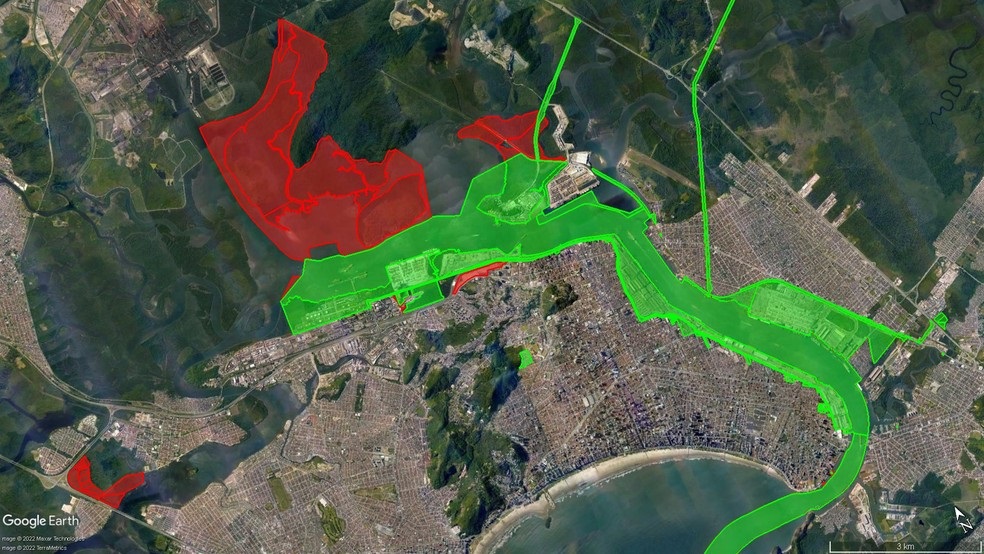
Update 12 October 2022: only nine months after the jurisdictional limits of the Port of Santos were changed, on 7 October 2022, MINFRA published Ordinance 1,366, altering, once again, the contours of the port boundaries. The previous regulation, Ordinance 66 of 8 January 2022, which almost doubled the port limits, was repealed.
Under the revised regulation, some areas previously destined for greenfield projects were removed, and other adjustments were made, bringing the port area back to what it was before, that is, around 8 km2.
Changes in the jurisdictional limits of the Port of Santos incorporate an area that almost doubles the boundaries of Latin America’s largest port complex
On 18 January 2022, the Ministry of Infrastructure (MINFRA) issued Ordinance 66 approving a significant expansion of the polygons (georeferenced port boundaries) of the public port of Santos, which has been in effect since June 2020.
The redefinition of port limits from 8 to 15.5 sq. kilometres almost doubles the area of the so-called “Organised Port of Santos” on the coast of São Paulo, Southeast Brazil.
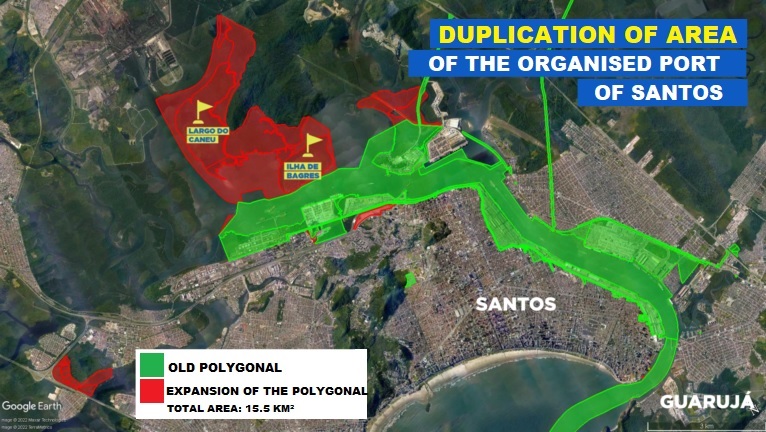
MINFRA’s Ordinance 66/2022 came into force upon its publication in the Official Gazette on 19 January 2022. It allows the new polygons to extend over mainland Santos, upstream of the port’s navigational channel, incorporating greenfield allocated for the development of new projects, in line with the Development and Zoning Plan updated by MINFRA in July 2020. According to the state-owned Santos Port Authority (SPA), before the expansion of the polygons, the organised port had almost 95% of its operational area occupied.
SPA manages the Organised Port of Santos, an inalienable asset of the Federal Union. The organised port comprises port accesses and infrastructure, berths, anchorages, an evolution basin, equipment, leased facilities for handling and storing goods, and the Ipatinga power plant. SPA oversees port traffic, collects port charges, including wharfage, and monitors cargo operations performed by the private sector within its area of administrative jurisdiction, which spans four municipalities beyond the city of Santos.
According to statistics from the National Waterway Transport Agency (ANTAQ), from January to November 2021, the port complex of Santos handled over 119 million metric tons (mmt) of goods of varied cargo profiles, 80% of which were moved in terminals within the organised port. The port complex covers 12% of all cargoes moved in the Brazilian port system, only behind the Ponta da Madeira Terminal in Itaqui, Maranhão, where the mining giant Vale alone shipped around 151 mmt of iron ore until November last year, 15% of all Brazil’s port handling volumes.
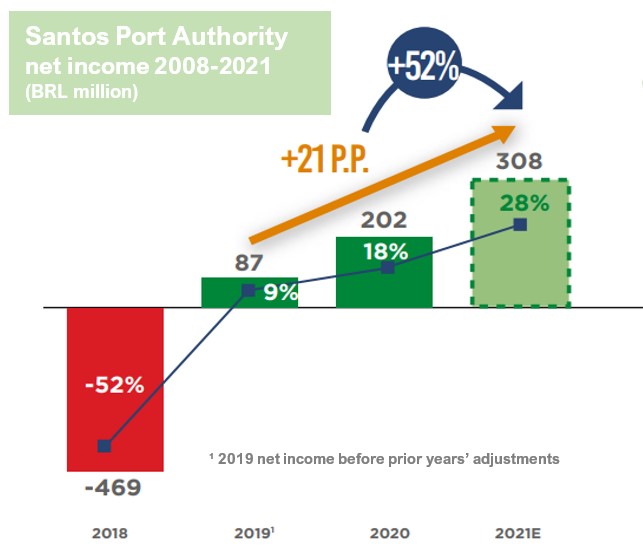
Since 2019, SPA has been yielding net profits in growing surpluses. The port authority expects to close the 2021 fiscal year with a 50% increase in net income over the previous year.
Expansion of the port limits follows the government’s plan to widen the range of investment opportunities, adding value and sharpening the interest of stakeholders, in preparation for broad, long-term privatisation of the Organised Port of Santos, scheduled to begin as early as the second half of 2022, according to the port authority.
MINFRA grants concessions of public port areas to the private sector through bidding processes conducted by the federal regulatory agency ANTAQ, after consulting other authorities and holding public hearings. Last year, the Ministry of Infrastructure granted some terminals in the organised port to private companies. Still, the upcoming privatisation program is promised to be much more ambitious.

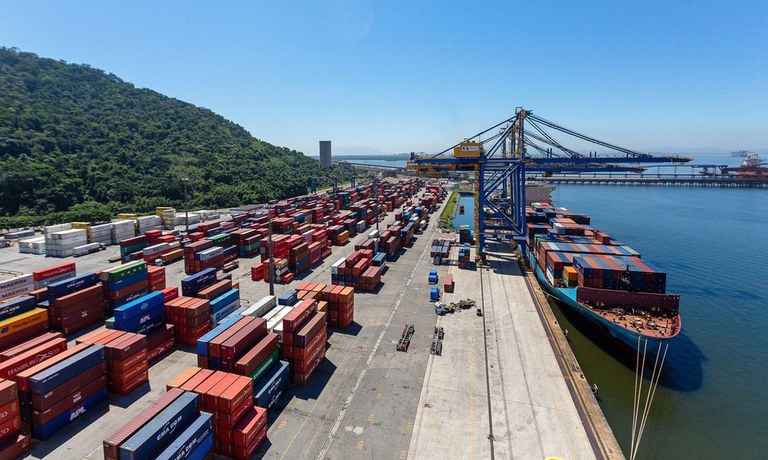
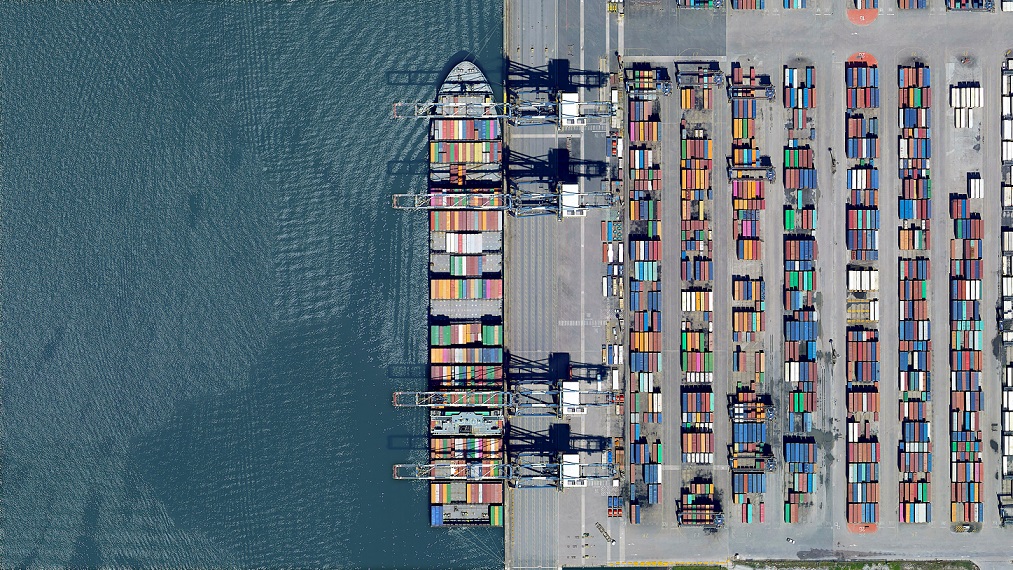

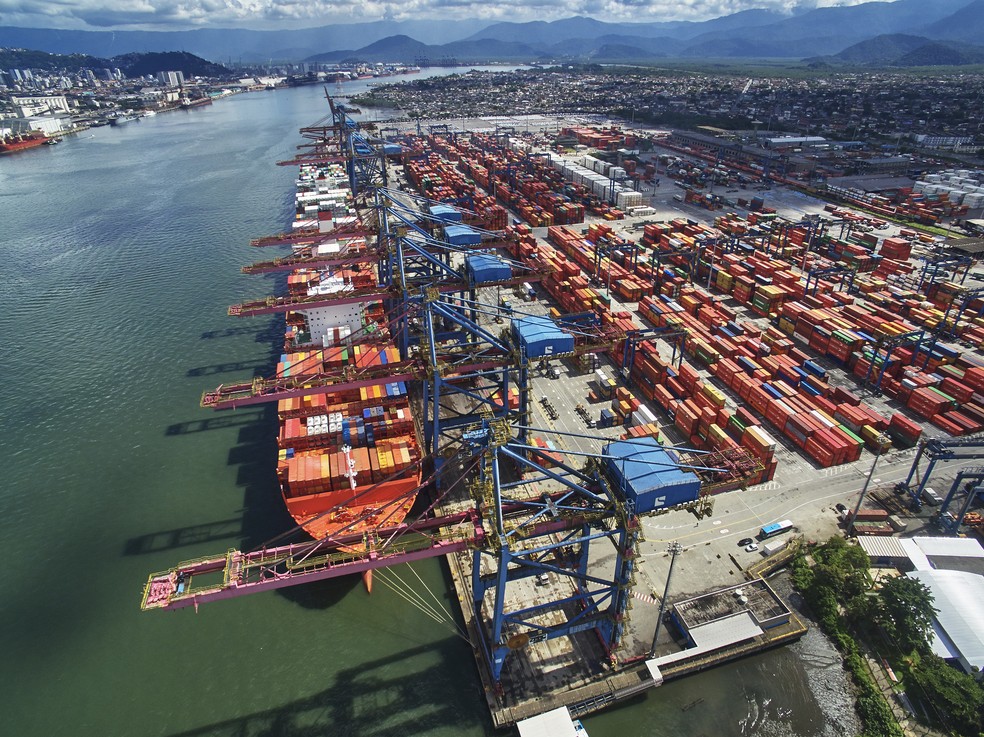
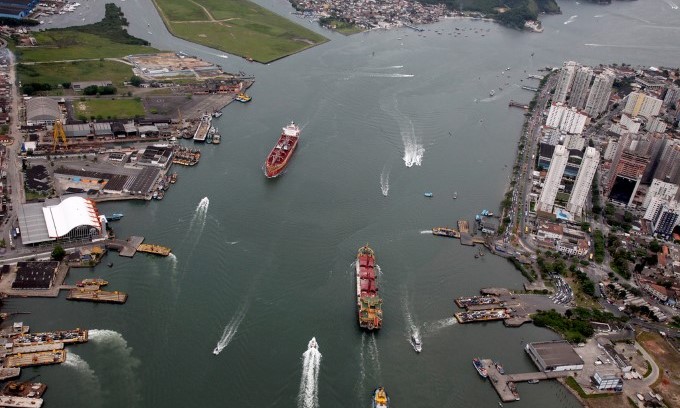
The newly added polygonal area will be included in the port privatisation. MINFRA will decide on the privatisation model it will adopt, including final details on mandatory investments, concession terms and other relevant aspects, after public consultation and hearings by ANTAQ throughout the first quarter of 2022. During this period, the federal regulatory agency will receive public contributions to improve the privatisation process expected to kick in the next semester.
Please read our disclaimer.
Published 21/01/22. Updated 12/10/2022
Related topics:
Rua Barão de Cotegipe, 443 - Sala 610 - 96200-290 - Rio Grande/RS - Brazil
Telephone +55 53 3233 1500
proinde.riogrande@proinde.com.br
Rua Itororó, 3 - 3rd floor
11010-071 - Santos, SP - Brazil
Telephone +55 13 4009 9550
proinde@proinde.com.br
Av. Rio Branco, 45 - sala 2402
20090-003 - Rio de Janeiro, RJ - Brazil
Telephone +55 21 2253 6145
proinde.rio@proinde.com.br
Rua Professor Elpidio Pimentel, 320 sala 401 - 29065-060 – Vitoria, ES – Brazil
Telephone: +55 27 3337 1178
proinde.vitoria@proinde.com.br
Rua Miguel Calmon, 19 - sala 702 - 40015-010 – Salvador, BA – Brazil
Telephone: +55 71 3242 3384
proinde.salvador@proinde.com.br
Av. Visconde de Jequitinhonha, 209 - sala 402 - 51021-190 - Recife, PE - Brazil
Telephone +55 81 3328 6414
proinde.recife@proinde.com.br
Rua Osvaldo Cruz, 01, Sala 1408
60125-150 – Fortaleza-CE – Brazil
Telephone +55 85 3099 4068
proinde.fortaleza@proinde.com.br
Tv. Joaquim Furtado, Quadra 314, Lote 01, Sala 206 - 68447-000 – Barcarena, PA – Brazil
Telephone +55 91 99393 4252
proinde.belem@proinde.com.br
Av. Dr. Theomario Pinto da Costa, 811 - sala 204 - 69050-055 - Manaus, AM - Brazil
Telephone +55 92 3307-0653
proinde.manaus@proinde.com.br
Rua dos Azulões, Sala 111 - Edifício Office Tower - 65075-060 - São Luis, MA - Brazil
Telephone +55 98 99101-2939
proinde.belem@proinde.com.br